 Petzlover
Petzlover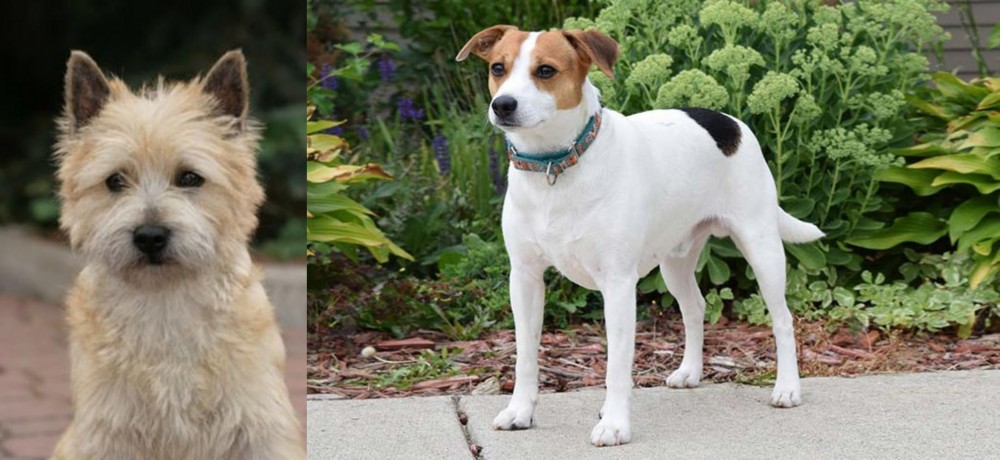 Cairn Terrier is originated from United Kingdom but Danish Swedish Farmdog is originated from Denmark. Both Cairn Terrier and Danish Swedish Farmdog are having almost same height. Both Cairn Terrier and Danish Swedish Farmdog are having almost same weight. Both Cairn Terrier and Danish Swedish Farmdog has same life span. Cairn Terrier may have more litter size than Danish Swedish Farmdog. Both Cairn Terrier and Danish Swedish Farmdog requires Low Maintenance.
Cairn Terrier is originated from United Kingdom but Danish Swedish Farmdog is originated from Denmark. Both Cairn Terrier and Danish Swedish Farmdog are having almost same height. Both Cairn Terrier and Danish Swedish Farmdog are having almost same weight. Both Cairn Terrier and Danish Swedish Farmdog has same life span. Cairn Terrier may have more litter size than Danish Swedish Farmdog. Both Cairn Terrier and Danish Swedish Farmdog requires Low Maintenance.
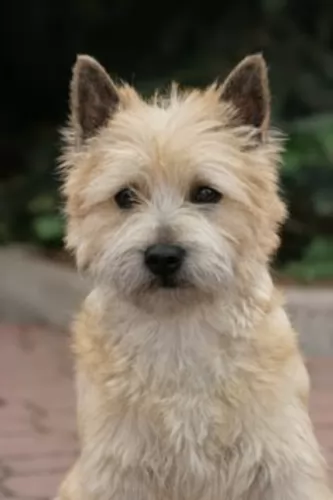 The Cairn Terrier originates in the Scottish Highlands. This feisty little dog was given the name Cairn, as he used to hunt prey between the Scottish cairns. At first the dog was grouped as a ‘Skye Terrier’way back in the 1900s with the Scottish and West Highland White Terrier. Then the different breeds began to be bred separately.
The Cairn Terrier originates in the Scottish Highlands. This feisty little dog was given the name Cairn, as he used to hunt prey between the Scottish cairns. At first the dog was grouped as a ‘Skye Terrier’way back in the 1900s with the Scottish and West Highland White Terrier. Then the different breeds began to be bred separately.
The name Cairn Terrier didn’t appear in print till 1887. It was in 1912 that the Kennel Club of the United Kingdom recognized the Cairn Terrier.
 The Danish Swedish Farmdog has over the centuries been a versatile dog, working on farms. The history of this dog goes way back to the 1700s, being found in Denmark and Sweden where they originated.
The Danish Swedish Farmdog has over the centuries been a versatile dog, working on farms. The history of this dog goes way back to the 1700s, being found in Denmark and Sweden where they originated.
Today these dogs are also found in other countries. As life changed, the dog’s functions on the farm became less and the dog seemed to disappear somewhat. Both the Danish and Swedish Kennel Clubs worked together to bring back the breed, resulting in the first breed standard in 1987.
The Danish-Swedish Farmdog was also recorded in the American Kennel Club Foundation Stock Services in 2011. Today, most of these dogs are owned as family or companion dogs.
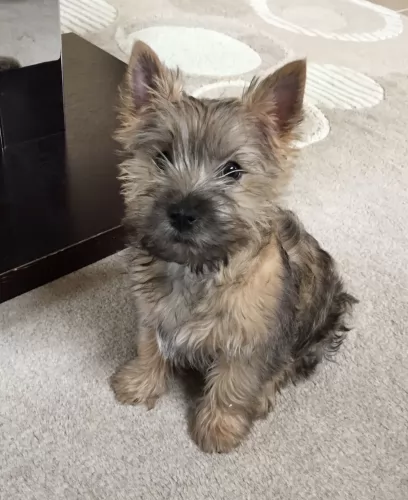 The small sturdily built working Terrier is intelligent and courageous. Bright-eyed, he is small and active and he just loves to work- and party hard with his human family. You’ll see if you’ve got a ball you want to throw for him, his tail is quivering in anticipation and his ears are erect and alert to any noise. He is smart, independent and courageous.
The small sturdily built working Terrier is intelligent and courageous. Bright-eyed, he is small and active and he just loves to work- and party hard with his human family. You’ll see if you’ve got a ball you want to throw for him, his tail is quivering in anticipation and his ears are erect and alert to any noise. He is smart, independent and courageous.
The Cairn Terrier has a tough, weather-resistant coat that can be any color but not white. He has a waterproof double coat – the outer one being wiry while the undercoat is soft. You’ll find the coat in man colours such as grey, black, red and brindle with dark points on the ears and muzzle.
The interesting thing with a Cairn is that when you get a puppy, you can’t be sure what color he will end up being as it changes over the years. The ears are fox-like, small and erect, and the natural medium-to-short tail is held straight out.
 Nobody could be blamed for thinking that the Danish Swedish Farmdog is a Fox Terrier, because he looks very similar. He also has a short, smooth coat which is odor-free and he is a wonderfully low maintenance breed. The coat does however shed throughout the year.
Nobody could be blamed for thinking that the Danish Swedish Farmdog is a Fox Terrier, because he looks very similar. He also has a short, smooth coat which is odor-free and he is a wonderfully low maintenance breed. The coat does however shed throughout the year.
The coat’s main color is white with patches of black, fawn or chocolate brown. He can also be tri-colored. He is a small to medium sized dog with a compact body, standing between 32 - 37 cm and weighing about 7 – 12kg. He has a deep chest while the head is lean, small and triangular shaped. The ears are semi erect or they can be floppy while the tail is long.
The Danish Swedish Farmdog is not only intelligent, but he has other excellent characteristics that make him such a splendid pet. He isn’t aggressive, he is playful, loving, loyal, social and energetic.
He therefore makes an exceptional pet. He is an amusing pet who will prove to be entertaining too. He loves being part of all the family’s activities and gets on well with children and pets in the home.
You want to be sure that you provide him with exercise and games so that he doesn’t become bored, frustrated and destructive. After all, he is a breed that is used to be busy and he won’t do well with a family who puts him in the back yard and just leaves him.
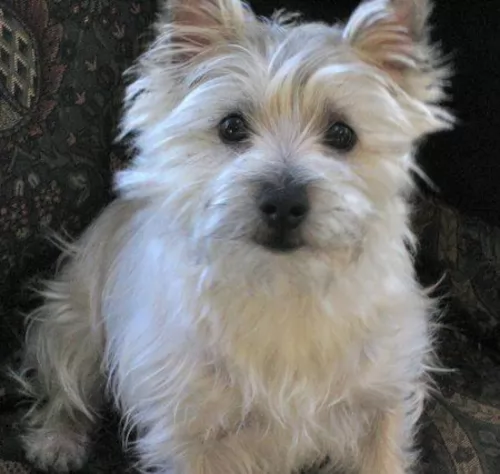 The Cairn Terrier is a fearless, jaunty little dog, known for his courageous spirit and inquisitive nature. He may be small, but he is stubborn. He will respond well to training and socialization which will turn him into the most awesome pet for families. He can make a wonderful friend and playmate for children too. Socialization and training ensures he gets on well with other pets in the household too.
The Cairn Terrier is a fearless, jaunty little dog, known for his courageous spirit and inquisitive nature. He may be small, but he is stubborn. He will respond well to training and socialization which will turn him into the most awesome pet for families. He can make a wonderful friend and playmate for children too. Socialization and training ensures he gets on well with other pets in the household too.
He is small and energetic, and therefore not the kind of dog you can ignore in terms of exercise. He’ll need a good walk every day and he just loves to chase a ball as it takes him back to the days when he was used to chasing- and catching mice.
He isn’t your typical lap-dog at all and with the right care he becomes a devoted, loyal and loving companion.
 The Danish Swedish Farmdog has got everything going for him that makes him such a wonderful pet to have. He fits well into city- or country life, although wherever you live, you’ll need to ensure he is well exercised.
The Danish Swedish Farmdog has got everything going for him that makes him such a wonderful pet to have. He fits well into city- or country life, although wherever you live, you’ll need to ensure he is well exercised.
He is a child-friendly- and pet-friendly pet and he also happens to be low maintenance. You just need to brush him twice a week. You aren't likely to spend much on vet's fees with him either.In exchange for his love and devotion, make sure that you give every everything he needs to ensure his health and happiness.
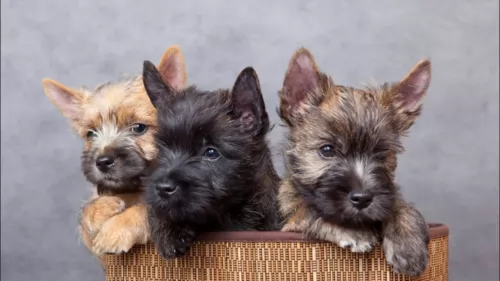 The Cairn Terrier is a robust little dog, and with good care can reach 14 years of age and even older. However, with every dog breed there are some health concerns particular to that breed. With your Cairn Terrier look out for a disease known as Globoid cell leukodystrophy (GCL).
The Cairn Terrier is a robust little dog, and with good care can reach 14 years of age and even older. However, with every dog breed there are some health concerns particular to that breed. With your Cairn Terrier look out for a disease known as Globoid cell leukodystrophy (GCL).
Known also as Krabbe Disease, Globoid cell leukodystrophy (GLD) is a rare but fatal disease. It is caused by a mutation on the dog’s DNA. There is abnormal processing of an enzyme needed for the production of myelin, a substance that protects the nerves in the brain and spinal cord. The dog is weak, it has tremors and isn’t co-ordinated. The Cairn Terrier is a breed of dog more susceptible to GCL.
Your Cairn Terrier may well suffer with joint diseases. These diseases, such as luxating patella which is about loose knee joints, and hip dysplasia which is a degenerative hip disease, can cause plenty of pain and discomfort for your pet.
Glaucoma is an eye disease where there is pressure on the eye, causing inadequate fluid drainage. Without treatment, there can be damage to the optic nerve which can lead to blindness.
 Danish-Swedish Farmdogs have a lifespan ranging from 11 to 15 years. They are hardy dogs, not suffering from any breed specific genetic issues.
Danish-Swedish Farmdogs have a lifespan ranging from 11 to 15 years. They are hardy dogs, not suffering from any breed specific genetic issues.
However, it pays off to know of some of the common dog illnesses there are. If you provide your dog with high quality, nutritious food, good exercise and plenty of love and care, he can reach 15 years of age. Some of the more common dog illnesses to look out for -
It is always a good idea to have this testing for your dog. In fact, hip testing can spare you a great deal of anguish later on with your pet.
Hip dysplasia is a common skeletal disorder in dogs and although it is more prevalent in large dogs, smaller dogs can also get it.
You’ll notice your pet running with a strange gait and sometimes when he lies down, he’ll battle to get up again.
Recognizing the clinical signs of hip dysplasia is important to spare your dog a whole lot of pain, discomfort and even lameness.
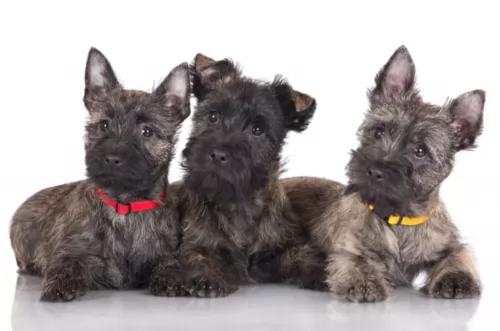 The Cairn Terrier sheds very little and the coat is easy to groom. Give him a thorough brushing twice a week to rid him of loose hairs. Some trimming will be needed as the coat can become shaggy and unruly.
The Cairn Terrier sheds very little and the coat is easy to groom. Give him a thorough brushing twice a week to rid him of loose hairs. Some trimming will be needed as the coat can become shaggy and unruly.
Brush his teeth at least 2 or 3 times a week to prevent tartar build up that can lead to bacteria, gum disease and possible tooth loss.
The Cairn Terrier is small but he is an active dog and therefore needs to be on a high-quality dog food. If you feed him a commercially manufactured food, make sure its appropriate to his age, size and activity levels.
He is a small dog so you want to be careful about not letting him become overweight. Try and alternate his commercially manufactured food with some home-made rice, vegetables and meat and also include some raw meat in from time to time. This is of particular importance as chronic skin allergies are common in all terrier breeds. Make sure that there is always a clean bowl of fresh water available to him day and night.
 The Danish Swedish Farmdog isn’t going to be requiring too much grooming. He has a short, smooth coat which actually repels dirt.
The Danish Swedish Farmdog isn’t going to be requiring too much grooming. He has a short, smooth coat which actually repels dirt.
Because his coat is odor-free, he certainly can get by without bathing. This is good news, as bathing a dog strips the skin of its natural oils. You can always just wipe his coat down with a damp cloth to rid it of dust and give his coat a good brushing twice a week to remove it of loose hairs.
It is always a good idea to check your pet’s ears to see that they remain free of debris and wax. There are ways and means to do this, and if you’re not sure how, your vet or doggy parlor can explain the process.
Check his nails to ensure they don’t get too long. This is prone to happen when your pet runs constantly on grass and doesn’t come into contact with a hard surface which files the nails down naturally.
Also, dental care is most important, and you need to brush your pet’s teeth 2 or 3 times a week with special toothpaste and toothbrush designed for dogs. Bad teeth don’t only affect the mouth of the dog, they can be detrimental to every part of your dog’s body.